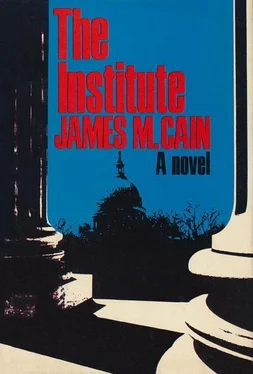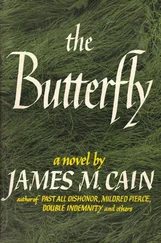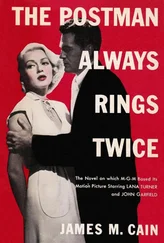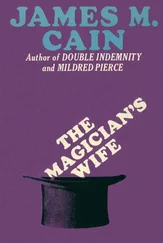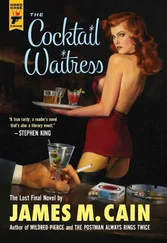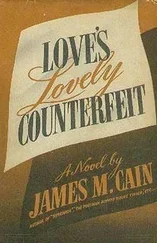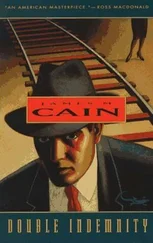There was an interruption at this point which really busted things up for a minute or two. Mr. Garrett sprang to his feet, acting downright hysterical, in a way that matched perfectly what Teddy had told me — about what Inga meant to him, the “thrall” she held him under.
“You’re not going to do it, are you, Inga?” he said, moving toward her, past the table and then trying to grab her. But she backed away with quick, defensive steps, holding her arm out all the while, like a football player when he stiff-arms a tackler. This went on for a minute or so, with him asking if it was true, what she meant to do, to which she gave him no answer, and if she believed what I had said — to which she kept saying: “Yiss, Mr. Garrett, yiss. I believe. I believe Dr. Palmer. You lie. You lie to me, yiss.”
“Knock it off,” I said to him, “and sit down.”
He went back to his chair and Inga to a chair I had pushed up for her, where she stood pursing her lips and swallowing. Hortense, who had watched the chase without saying anything, now turned to me and asked: “May I borrow your pen, Lloyd?”
“Oh, pliz, Mrs. Garrett, take my.”
Inga was unzipping her bag and reaching inside it. But what she came up with wasn’t a pen. It was a gun, a snubnosed, shiny thing, the kind known as a “Saturday night special.” She raised it, first dropping her bag on the chair, and aiming at Mr. Garrett.
“Now, sir, die — pliz,” and she popped him one last knick.
The gun spoke with the deafening roar of a shot fired indoors. There was a streak of yellow light and a sudden billow of smoke. He stood for one last moment, then vloomped down on the cocktail table and rolled onto the floor.
Hortense ran around, dropped down on her knees beside him, and began talking to him in low, vibrant tones. “Richard, Richard; no, no, no — don’t go; don’t let yourself. No, it’s me. Look at me. Oh, darling, darling, darling—”
There was more of this, what I would have wanted her to say and yet hated to hear, hated to overhear because of the intimacy of it. So as not to intrude, not to see such a personal moment, I turned away and glimpsed Inga as she stood there with the gun at her side, seemingly in a daze. Hortense went on and on. Then the change in her voice told me that it was all over, that Mr. Garrett was dead. Then her voice came, hard, bitter, and rasping: “You rotten little—”
But the way she broke off alerted me, and I wheeled around to see Inga aiming once more, this time straight at Hortense. Her back was to me, and I reacted automatically, as quickly as God would let me. I aimed a karate chop at that short little neck. It cracked as she collapsed at my feet, but the gun cracked first — and there was the love of my life, her eyes glazing over yet seeking me and at last finding me.
I reached her in two jumps and caught her before she fell. I had read somewhere that a person suddenly wounded should be stretched out flat and not prodded or twisted or lifted except by trained medical people. I pushed the table over to make room for her on the floor and then eased her down. I grabbed a pillow from a sofa and pushed it under her head, all the while speaking to her. She would answer, not by saying anything but by moving her head just a little as if she were trying to nod. I couldn’t see where she was shot, so there was nothing else I could do.
“Darling,” I said, “I have to call — call for an ambulance so we can get you to a hospital. I’ll be right back.”
She moved her head once more, and I sprang for the phone. By then, of course, Miss Nettie had left for the night and I hardly knew the night watchman. He was so dopey when I told him to get the police, so slow to snap out of his sleep, that I slammed the receiver down and called the police myself on the outside phone. I found the number on the emergency list the phone company prints in the front of the book.
“For God’s sake,” I said, “step on it, will you? There’s a woman here who’s been shot, and she can be saved if you—”
“Take it easy, pal,” said the voice at the other end. “We’ll be there. We’re on our way right now.”
I opened the hall door and then went back to Hortense. I kept talking to her, but her hand found mine, telling me to be quiet. So, for an eternity, we communed, hand in hand.
All of a sudden the elevator door clanged open, there was a knock at the door, and the state police were there, three or four of them headed by a sergeant. There was also an ambulance crew in green smocks, two orderlies and a doctor who looked like a high school boy. He pushed through the officers, knelt by Inga, and immediately fanned his hand to indicate that she was dead. He told the orderlies to lay her out. Then he stepped over to Mr. Garrett, fanned his hand the same way, and motioned to the orderlies again. He knelt by Hortense, felt her pulse, lifted an eyelid with his thumb, and said to the orderlies: “Never mind them. Help me get her down to the ambulance — now .” He gave the table a kick and they lifted it over the sofa to the space between it and the bookcases, which made room on the floor beside her. Then the doctor took a blanket from a pile the orderlies had brought and put it down beside her, folding it carefully. He pushed one edge of it under her and rolled her on her side. Then he rolled her back, pulled the blanket through, and motioned for the orderlies. They put down the stretcher and lifted her onto it with the blanket.
“O.K.,” he said, and they moved her quickly to the elevator. “Hold it,” he called and then said to the sergeant: “I have to rush her over if she’s going to have a chance. Get your names and the information on the others, and I’ll meet you at the hospital in the morgue and sign the certificates for you. They’ll both be autopsy jobs, but that report, of course, will be separate.”
“O.K., doc, take her away.”
Through the door I could see her as they took her onto the elevator, her face pale as the light shone down. She was beautiful. When she was gone, I turned to the officers who had taken up where the orderlies had left off, laying the bodies out for another ambulance crew and covering them with blankets. The sergeant, who said his name was Herbert, sat down on a sofa and motioned to me. The whole place seemed very odd to me now; everything was askew.
“Just a minute while I straighten up,” I said. I picked up the table and put it back in place and then pulled the sofa straight.
“O.K.,” the sergeant said, “let’s go.”
“Go where?”
“Suppose you tell me what happened here.”
“Well, there’s not much to tell, really. Miss Bergson — the woman over there, Miss Inga Bergson — shot Mr. Garrett, the man lying beside her, and then shot Mrs. Garrett.”
“Do you know their addresses?”
“I think I do.”
“O.K., but first, who shot her?”
“Who?”
“Miss — Berson. Is that what you said her name is?”
“No one shot her.”
“Then how come she’s dead?”
“Search me. I didn’t know she was dead until that doctor said she was. I must have broken her neck.”
“You must have—”
I explained what I had done. It took him a moment to readjust. Until then, he had assumed that Inga had also been shot.
“I came down on her neck with my hand,” I said, “with kind of a karate chop. But the gun went off first. And when I saw that Mrs. Garrett was hit, I didn’t pay much attention to whether Miss Bergson was hurt — and I completely forgot the gun.”
He motioned toward the dispatch case he had put on the opposite sofa, saying: “I have it. It was on the floor beside her. So let’s go back to the names.”
Читать дальше
